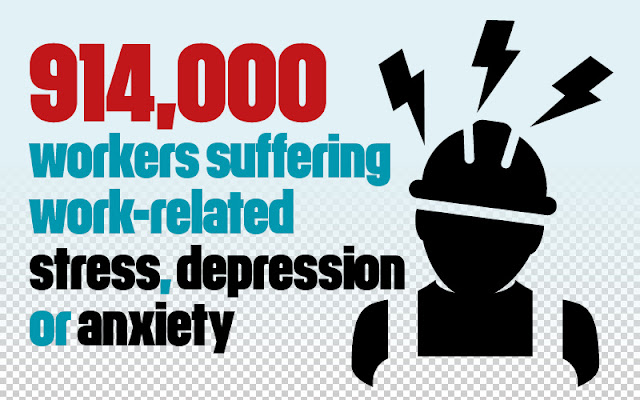
Plain speaking
Judith Hackitt, Chair of the Health & Safety Executive
tells it as it is. This was in response to a question from a trade union safety rep at today’s joint SERTUC/HSE
safety conference “
The Healthy Workplace”.
The rep asked what he should do when he gets fobbed off by managers with silly arguments and excuses. Ms Hackett thought that the excuses sounded like a “r
ich trapeze of rubbish” then suggested using the
C**P argument.
I don’t remember reading this negotiating advice in any HSE pamphlets or even during my TUC safety courses? As branch health & safety officer I hesitate to recommend this to UNISON safety reps but I suppose since this advice is from the Chair of the H-S-E! So who am I to differ? (
this is a Joke, repeat Joke)
The conference was very good. The emphasis was on preventing work related ill health and promoting well being rather than traditional safety issues. Dealing with health issues is usually more complex than safety.
The day kicked off with a speech by the SERTUC regional Secretary Megan Dobney. Megan pointed that even in a recession you do not cut health & safety. Also the widespread disappointment that there was no mention in recent Queen’s speech about asbestos and plural plaques.
Next was Judith (2nd from left) who talked about the new HSE strategy and 3 key issues. 1. The importance of enforcement action to achieve justice. 2. All HSE leaflets are now available for free on the internet and 3. Safety campaigning - especially on asbestos. There are 2 million suffering from work related ill health. Apart from the suffering and emotional pain the business case for dealing with this is compelling. Prevention is better than dealing with it afterwards. Health more important than safety. Need to raise our game on health.
Ed Sweeney the Chair of ACAS was the next main speaker (on right). A healthy workplace has good communication and consultation; equality and dignity; good relations with trade union reps and their organisations. It is useless having excellent procedures and policies if they are not implemented. Or Managers not trained or supported on how to properly implement. He stressed the importance of good line management and importance of employee engagement. The role of the rep is an advocacy, influencing, supporting, training and development role in providing good working places for people in the UK (and the rest).
In the Q&A my former TUC Occupational H&S course (1999-2000) colleague Phil Hood asked about the risk to existing safety regulations if the Tories are elected. A Tory think tank is proposing that if a company carries out an “independent” inspection then HSE inspectors will be barred from inspecting them. Ms Hackitt said that companies complain that the HSE doesn’t carry out enough inspections! She pointed out that she came from a chemical engineering and business background and believes the role of safety reps is vital and it would be fundamentally wrong to prevent enforcement.
My question to her was about what the HSE can do about the rogue consultants who just sell businesses (especially SME) unsuitable off the shelf; one size fits all safety policies which are not consulted upon with workers never mind safety reps? Judith agreed that she had been astonished when she took up her present post that there is no legal regulation of those who call themselves safety advisors. She thought it was not a HSE responsibility but agreed that companies are spending thousands and being ripped off. She thought that the IOSH and the other safety professional organisations need to sort things out and there needs to be a way to discipline such rogue consultants. She pointed out that she had a degree in engineering but was not deemed competent in her field until she had proven herself at work.
The blacklisted and disgracefully victimised construction safety rep
Dave Smith (my former TUC tutor) asked Judith why when he was sacked from job after job, because of his blacklisting and safety rep duties, he would contact the HSE for advice only to be told that this was an industrial relations matter, not a safety matter and they were unable to help. Judith confirmed that blacklisting because you were a safety rep was indeed a matter for the HSE. She apologised if wrong advice had been given in the past. She pointed out the (unspecified) action that the HSE had taken against the North Sea offshore energy rigs companies who had “
deemed” certain union safety reps NRB (
not required back).
Which raised more questions than answers but I feel that most of us (IMO) felt that Ms Hackitt would have a very sharp (and unprintable?) opinion of companies or organisations who in the future victimise or blacklist safety reps.
This was the morning session. I will hopefully soon post on the afternoon which was also really useful. But I’m just a little behind on a number of posts at the mo.

















